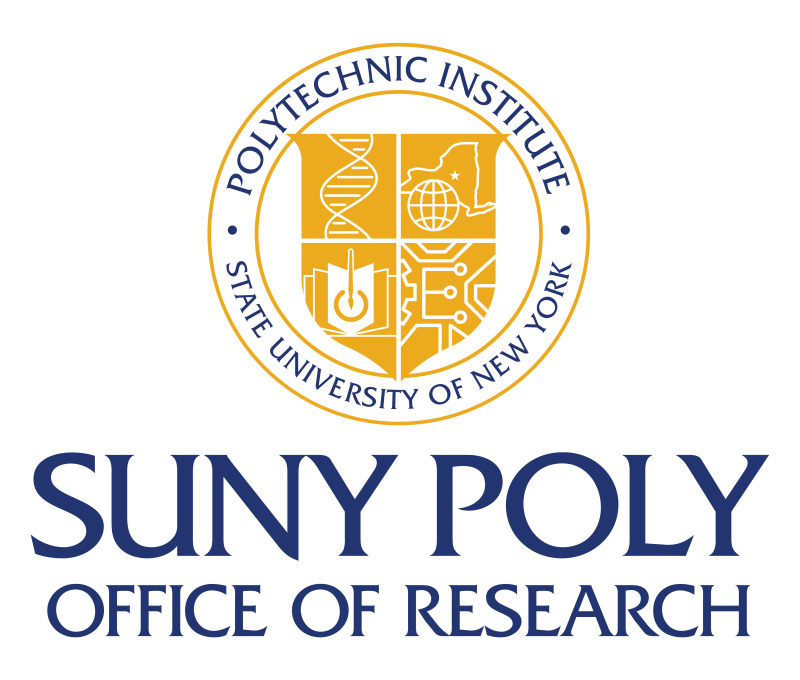SUNY Poly Professor Awarded U.S. Department of Energy Grant as Part of Overall $750,000 Project to Develop More Efficient, Cost-Effective Power Electronics Chips

DOE grant to support SUNY Poly research targeting manufacturability of smaller power electronics chips for applications ranging from solar panels to the electrical grid
ALBANY, NY – SUNY Polytechnic Institute (SUNY Poly) announced today that Associate Professor of Nanoengineering Dr. Woongje Sung has been selected to receive $375,000 in federal funding from the U.S. Department of Energy (DOE) as part of an overall $750,000 project for the development of next-generation power electronics chips that are smaller and more efficient than current power electronics chips. However, the award is even more significant because Dr. Sung’s research efforts could also lead to the development of a more cost effective manufacturing process to make these silicon carbide-based (SiC) chips, enabling more robust chips for everything from solar energy, electric vehicles, and the electric grid.
“On behalf of SUNY Poly, I congratulate Professor Sung on receiving this research award, highlighting the important power electronics-centered work that our institution is pursuing,” said SUNY Poly Interim President Dr. Bahgat Sammakia. “This most recent selection of SUNY Poly research for DOE funding is a testament to SUNY Poly’s expert faculty and high-tech capabilities, which are driving the advanced technologies that play a role in all of our lives.”
“This award is another wonderful recognition of the research excellence of SUNY Poly faculty. I compliment Dr. Sung, especially as this effort paves the way for hands-on student research opportunities in an area of critical importance to our country’s energy future,” said SUNY Poly Provost Dr. William Durgin.
“I am thrilled to offer my congratulations to Dr. Sung for his SiC-based research grant, showcasing how SUNY Poly is playing a role in the technologies of the future and making the chips utilized in our electrical grid, for example, more energy efficient, in addition to being cheaper to manufacture,” said SUNY Poly Interim Dean of the College of Nanoscale Engineering and Technology Innovation and Associate Professor of Nanoengineering Dr. Michael Carpenter. “This Department of Energy grant, combined with a recent award received by Dr. Sung for power electronics development, also from the DOE, not only means that Dr. Sung is approaching $1 million in research programs this year in this exciting area, but it also reveals how SUNY Poly is leading the way when it comes to cutting-edge SiC-focused research.”
Supported by the DOE grant, Dr. Sung’s research will utilize the superior material properties of SiC, which allow for a type of transistor—the metal-oxide-semiconductor field-effect transistor, or MOSFET—to be designed ten times smaller than its silicon-based counterpart. Since transistors make up chips, and chips are built on circular discs called wafers, it means that 10 times more chips can be produced on each wafer. Coupled with an expected move from a 4” to a 6” wafer, these anticipated economies of scale could lead to the vastly more cost-effective production of power electronics chips via Dr. Sung’s innovative design concepts and the establishment of a more efficient manufacturing process flow.
This research could lead to improved performance for a wide variety of applications. Dr. Sung and his research team will focus on developing SiC MOSFETs and diodes with voltage ratings of 600 V for power supplies, photovoltaic inverters, and electric vehicles; 3.3 kV and 6.5 kV for heavy duty vehicles and wind turbines; and 10 kV for circuit breakers and electrical grid applications, for example.
“I am honored that the U.S. Department of Energy has recognized the incredible potential of SUNY Poly’s power electronics research. I am excited to continue to focus on the creation of smaller-scaled MOSFET SiC-based chips and diodes as we explore novel means to produce them more efficiently and cheaply than the current power electronics standard,” said Dr. Sung. “This grant will simultaneously support SUNY Poly students as they gain first-hand experience creating the power semiconductor electronics of tomorrow, and we are thrilled that this work, leading to chips that consume less energy, could save significant amounts of energy once they are produced in a way that makes them even easier to adopt.”
The power electronics-focused research will support SUNY Poly graduate and undergraduate students, who will gain first-hand experience optimizing the device structure, designing the process flow, and characterizing fabricated devices. It also follows a recent announcement of $720,000 in funding from the U.S. Department of Energy for the further development of gallium nitride-based power electronics at SUNY Poly, in which Dr. Sung received a portion of the funds for research in partnership with Interim Dean of Graduate Studies Dr. Fatemeh (Shadi) Shahedipour-Sandvik, the Army Research Lab, Drexel University, and Gyrotron Technology, Inc. That DOE Advanced Research Projects Agency-Energy (ARPA-E) funding will be used to develop new ways to build semiconductors for high-performance, high-powered applications like electric vehicles and the grid.
####################
SUNY Polytechnic Institute. SUNY Polytechnic Institute (SUNY Poly) is New York’s globally recognized, high-tech educational ecosystem, formed from the merger of the SUNY College of Nanoscale Science and Engineering and SUNY Institute of Technology. SUNY Poly offers undergraduate and graduate degrees in the emerging disciplines of nanoscience and nanoengineering, as well as cutting-edge nanobioscience and nanoeconomics programs at its Albany location and undergraduate and graduate degrees in technology, including engineering, cybersecurity, computer science, and the engineering technologies; professional studies, including business, communication, and nursing; and arts and sciences, including natural sciences, mathematics, humanities, and social sciences at its Utica/Rome location. Thriving athletic, recreational, and cultural programs, events, and activities complement the campus experience. As the world’s most advanced, university-driven research enterprise, SUNY Poly boasts billions of dollars in high-tech investments and over 300 corporate partners since its inception. For information visit www.sunypoly.edu.
####
Media Contact:
Steve Ference, Director of University Communications
(518) 956-7319 | sference@sunypoly.edu








